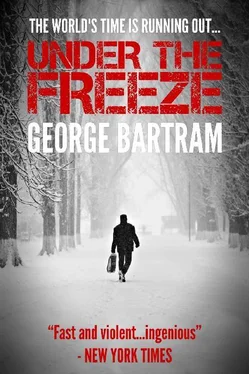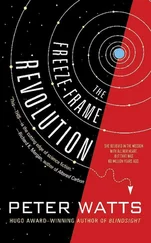“Awfully priggish.”
“He’s careful, yes.”
“Priggish.”
Carrington blushed again. “He’s my superior. I’d really rather that you didn’t… It’s difficult for me—”
“Sorry. Well. Let’s change the subject.”
Carrington had flung himself back in the chair. He looked exhausted now, one hand shading his eyes, the other hanging down limply almost to the carpet. “Was Repin your control?” he said.
“I don’t have a control. It’s not that kind of arrangement.”
“You’re on your own? Good God, you have got nerve, haven’t you! How will you manage with Repin gone?”
Tarp grunted. “I’ve been wondering that myself.”
“Well, it isn’t as if you were friends. Is it? I mean, you and Repin didn’t owe each other anything.”
Tarp kept silent. He was thinking of Southeast Asia, when Repin had been running the Soviet stations and he had been an agent moving back and forth across the Chinese border. Repin’s people had almost killed him four different times. “It isn’t a question of owing,” he said. He was tempted to tell Carrington about the plutonium and Maxudov then, but he did not. “It’s simply a question of having made a contract.” Carrington continued to study him from the shadow of his hand. “I wish sometimes I’d done more fieldwork,” he said. “You people have that very odd ethos. It gives you and Repin more in common with each other than you have with me.” His mouth turned wry. “Most of my life is managing piles of paper, and after a while that’s all the reality a civil servant knows — paper. It all becomes paper. It might be good for us to get out in the field and smell the brimstone now and again.”
A few minutes after he said that, his wife came in, and the talk became social and, to Tarp, trivial. Gillian was as lovely as ever, just beginning to show the first signs of maturity. She had stayed behind at the dinner because she was relentlessly social and because, she told Tarp, she believed in her husband’s “enormous promise.” The implication was that she could help him realize that promise by going to dinner parties. She was probably quite correct, although the promise realized in that fashion would lead him inevitably to more and more paper and less and less “brimstone.” She and Tarp exchanged brief looks; he thought there was a hint of challenge, perhaps of flirtatiousness, and he wondered if she was entirely faithful. It was not a curiosity he thought worth satisfying, and after a few minutes he got up to go. She would have gone on, he knew, but her husband was visibly sleepy.
“See here,” Johnnie managed to say as he saw him to the door, “I’ll let you know tomorrow. About — the matter we discussed.”
“I’ll call you.”
“No. Meet me someplace. I’ll have made a decision; one can’t shilly-shally. Do you know Prong’s?”
Prong’s was a club, one of the oldest and least accessible in London.
“I know where it is.”
“Meet me there at half five. I’ll tell the porter to show you in. I’ll have an answer then, I promise.”
Tarp refused Carrington’s offer of a car and driver and walked. He headed for the theater district, knowing there would be crowds and light there. He supposed that he was being followed: Carrington would have posted somebody in order to keep track of him.
Tarp crossed a busy street and got into a queue waiting for a bus. He watched the people who crossed after him and thought he could identify a thin, tired-looking man as his tracker. The man did not get in the bus line but went up the street and seemed to become interested in a store window offering cheap tours to the Kenya coast.
Several bus routes were served by this one stop, and the queue sorted itself out as buses came roaring in. Tarp lingered where two groups overlapped; he could see the tracker, turned partway toward him, waiting to see which bus he would board. Then a passerby bumped into the man and he lost his balance, put out a hand toward the window and almost fell, and in that moment Tarp pushed past the bus line and cut up a narrow street toward Soho. After half a block he went into a Chinese restaurant whose windows were steamed to translucency by great pots of noodles that were cooking in the front. He picked a table not far from the door and sat where he could watch it, opening the menu but not reading it.
Two people came in, neither of them the tracker. One was a young Chinese who went directly to a flight of stairs and on up; the other was a short, stout man with apple cheeks and a bristle mustache and silver hair that to Tarp looked artificial. Tarp merely glanced at him before turning back to the door; still, he was aware of the man’s movements as he came toward the back.
Tarp looked up.
The man pulled out a chair and sat down opposite him, rested his umbrella against the table and began to pull off his gray gloves. Tarp now saw that the redness of the cheeks, the hair, the mustache, were all false.
“ Repin !”
The wily old Russian removed his hat with great care so as not to disarrange his wig. His round face was split with a smile.
“Is not so easy to kill Repin as Maxudov thinks!”
“How the hell did you find me?”
Repin tapped the wig, meaning to tap the skull under it. “Is not an idiot, this Repin.”
“That’s a Russian gesture, not an English one. You’re too flamboyant for a Brit.”
Repin showed his false teeth in a pleased grin. He liked being called flamboyant. “Repin thought he looked the picture of British civil servant.”
“How did you find me?”
“Hire Attire. Repin remembers telling you. Repin says to himself, This Tarp, he will look for this place because he likes oddities and he likes hiding places. Yes?”
“I thought they were supposed to be discreet.”
“Oh, very discreet. I tell them my tall friend is coming to buy clothes, will they please to give him special treatment. They tell me my tall friend is here already. Aha, I tell myself, he goes next to his old friend Carrington. So. I wait outside Carrington’s house. In truth, I never thought I find you that way; tomorrow, I try dead drop in Geneva, which takes a week to reach you.”
“You’re on the run?”
“ Da — very fast.”
A waiter appeared and proved immediately that he did not know enough English to matter, and they both started to speak to him in Chinese, then stopped, aware that it was a mistake. Tarp stumbled through an order in English for noodles with garlic fish for two. When the waiter had ambled off, looking cocky and careless, Tarp said, “Are you supposed to be dead?”
“Oh, yes. Was very bad, that plane crash. Many bodies still unidentified.”
“Were you warned?”
Repin shook his head. His small eyes were angry, his face impassive with a control that came from rage. “The KGB flunky I show you in Havana, at the ballet, you remember? At Luxembourg, I see him leaving plane. Very peculiar. I see him meet with man in mechanic’s overalls. They go away. So, I tell Svetlana Mikhailovna, do nothing, act natural, I must leave. Young woman of air crew, she tries to stop me; she tells me pilot has very strict schedule. I tell her I am KGB, which she really knows anyway, and I do what I want. I leave airplane, sniff around, follow young KGB fellow. You know where I find him? In a trash container, dead. By then my aircraft is in flight. Then it is over — within sight of the airport.” He raised his hands quickly: an explosion. Tarp thought of the dancers who had been so lithe and so young.
“Who knows you’re in London?”
“Nobody.” Repin looked unhappily into his teacup. “I had extra set of papers, you understand. Insurance. You understand insurance.”
Читать дальше












